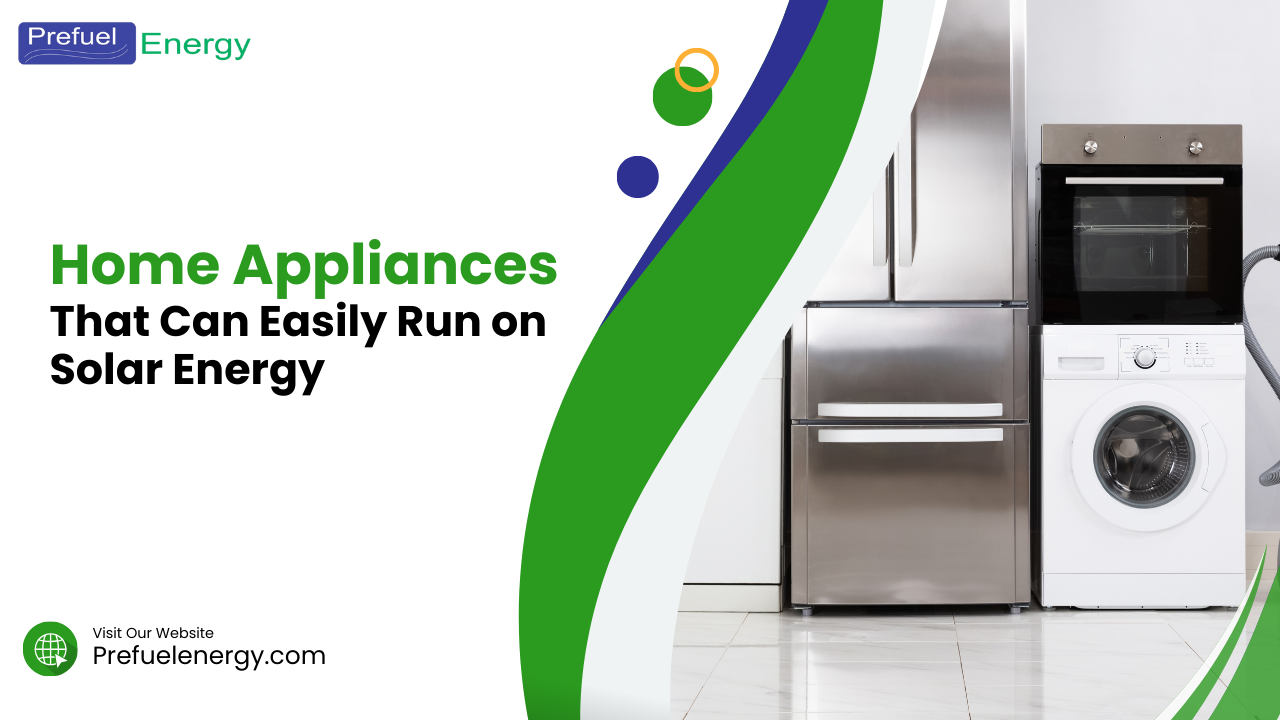In today’s world, where environmental awareness is at an all-time high, more and more people are turning to renewable energy sources to power their homes. Solar energy, in particular, has become increasingly popular due to its numerous benefits, including reduced electricity bills and a smaller carbon footprint.
One of the most exciting developments in the world of solar energy is the ability to power various home appliances using solar panels. From refrigerators and washing machines to air conditioners and televisions, a wide range of appliances can now be run on solar power.
In this article, we will explore seven home appliances that can easily run on solar energy and discuss the factors that influence solar energy usage. We will also provide a list of frequently asked questions to help you better understand the potential of solar energy in your home.

Home Appliances That Can Run on Solar Energy
- Refrigerators
- Refrigerators are essential appliances that typically run 24/7, consuming about 1.5 kWh daily. By using solar power, homeowners can significantly reduce their electricity bills while ensuring their food stays fresh.
- Washing Machines
- Washing machines are commonly used in households and can efficiently operate on solar energy. While they consume moderate energy, using cold water settings can enhance energy efficiency.
- Ovens
- Ovens can consume between 1 kWh and 4 kWh, depending on usage. Switching to solar power can reduce energy costs while still allowing for baking and cooking needs.
- Air Conditioners
- Air conditioners account for a significant portion of household energy consumption, especially in hot months. Using solar power can help mitigate these costs, with most units consuming around 3-3.5 kWh.
- Dryers
- Cloth dryers require substantial energy, typically between 1.8 kWh and 5 kWh. Utilizing solar power for dryers can alleviate the financial burden of high electricity bills.
- Heaters
- Both water and room heaters consume considerable electricity. Switching to solar-powered heaters can provide warmth during winter months without the hefty energy costs.
- Dishwashers
- Dishwashers are increasingly popular and can run on solar power, consuming about 1.2-2.4 kWh. Using solar energy during the day maximizes efficiency and reduces reliance on the grid.
Book Solar Panel For Home Appliances
Benefits of Using Solar Energy for Home Appliances
- Sustainability: Solar energy is a renewable resource that reduces reliance on fossil fuels, contributing to a healthier environment.
- Cost Savings: While initial installation costs may be high, solar power significantly lowers electricity bills over time.
- Independence from Power Outages: Solar power systems can provide a reliable energy source, reducing the impact of power cuts.
- Decreased Grid Pressure: Widespread solar adoption can alleviate stress on electrical grids, particularly during peak usage times.

FAQ’s
Yes, heavy appliances can be effectively powered by solar panels.
Yes, if the solar power generated meets the household’s energy needs, it can operate solely on solar energy.
The number of panels required depends on the total energy consumption of the appliances being used.
Monocrystalline panels are often preferred for their efficiency and space-saving design.
Yes, as long as the solar panel system is designed to meet the power requirements of those appliances.
Solar panels are most effective in sunny conditions, but they can still generate power on cloudy days.


